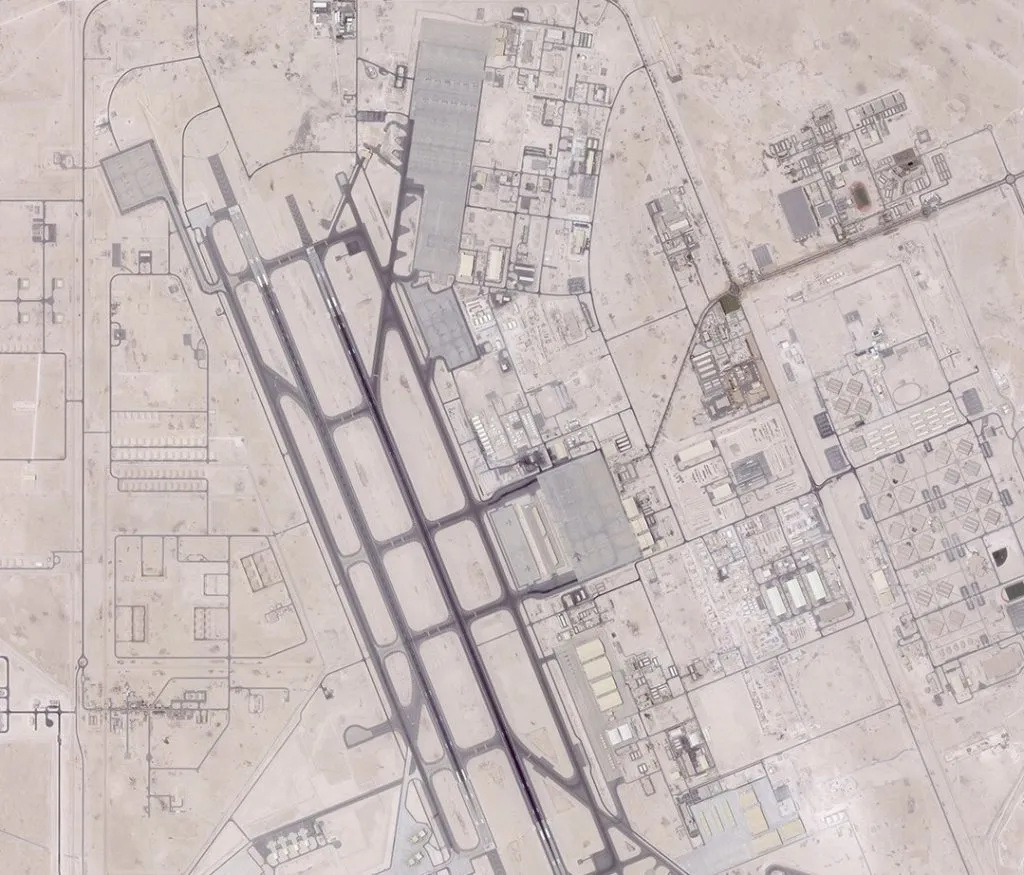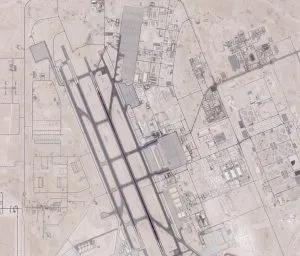Iran Launches Missile Strikes on U.S. Military Bases in Qatar and Iraq, Escalating Regional Tensions

Doha, Qatar – June 23, 2025 – Iran fired a barrage of missiles targeting U.S. military bases in Qatar and Iraq on Monday, in a significant escalation of hostilities in the Middle East. The attacks, which struck Al Udeid Air Base in Qatar and Ain al-Asad Air Base in Iraq, were described by Iran’s Islamic Revolutionary Guard Corps (IRGC) as a “powerful and devastating” retaliation for recent U.S. and Israeli airstrikes on Iranian nuclear facilities. The strikes have heightened fears of a broader regional conflict, with Qatar condemning the attack as a violation of its sovereignty and the U.S. closely monitoring developments.
Details of the Attack
According to reports from regional sources and posts on X, Iran launched at least six to ten missiles aimed at Al Udeid Air Base, the largest U.S. military facility in the Middle East, located south of Doha, Qatar’s capital. At least one missile was also directed at Ain al-Asad Air Base in western Iraq, a key U.S. military outpost. Explosions were reported over Doha, with videos circulating on X showing bright flashes and loud blasts in the night sky. Qatari air defenses, bolstered by U.S.-provided systems, reportedly intercepted the incoming missiles, preventing any confirmed casualties or damage at Al Udeid. No immediate damage assessments were available for Ain al-Asad.
The IRGC claimed responsibility for the strikes, stating they were a direct response to U.S. and Israeli airstrikes over the weekend that targeted Iranian nuclear sites, including facilities suspected of advancing Iran’s nuclear weapons program. “Our response was precise and necessary to defend our sovereignty and deter further aggression,” an IRGC spokesperson said in a televised statement. Iranian officials warned that additional strikes could follow if the U.S. or Israel retaliate.
Qatar’s Response
Qatar, a key U.S. ally hosting Al Udeid Air Base, issued a strongly worded condemnation of Iran’s actions. The Qatari Ministry of Foreign Affairs called the missile strikes a “flagrant violation of Qatar’s sovereignty and territorial integrity” and reserved the right to take “all necessary measures” in response. Qatari officials confirmed that their air defenses successfully neutralized the threat, and no injuries or damage were reported in Doha. The ministry urged all parties to exercise restraint to avoid further escalation.
The attack placed Qatar in a delicate position, as the Gulf state maintains diplomatic relations with both the U.S. and Iran while mediating regional disputes. Analysts suggest Qatar may seek to de-escalate tensions through backchannel diplomacy, though public pressure to respond to the violation of its airspace could complicate these efforts.
U.S. and International Reactions
U.S. officials confirmed that the Pentagon tracked the missiles in real-time, with President Joe Biden and senior advisors convening in the White House Situation Room to monitor the situation. A Pentagon spokesperson declined to provide details on damage or casualties, stating that assessments were ongoing. “The United States will take all necessary measures to protect our forces and allies in the region,” the spokesperson said, signaling potential U.S. retaliation.
The missile strikes come amid heightened U.S.-Iran tensions following the weekend’s airstrikes, which were justified by the U.S. and Israel as preemptive measures to curb Iran’s nuclear ambitions. Iran has denied pursuing nuclear weapons, accusing the U.S. and Israel of fabricating claims to justify aggression.
International reactions were swift. The United Nations called for an emergency Security Council meeting to address the escalating crisis. Saudi Arabia and the United Arab Emirates, Sunni Gulf states wary of Iran’s regional influence, expressed solidarity with Qatar and the U.S., urging a “firm response” to Iran’s actions. Russia and China, which have opposed U.S. military actions in the region, have not yet issued official statements, but their diplomats were reportedly in contact with Iranian counterparts.
Regional Context and Escalation Risks
The missile strikes mark a dangerous new phase in the Middle East already fraught with conflict. Iran’s decision to target U.S. bases in Qatar, a non-combatant nation, and Iraq, where U.S. forces operate with host government consent, underscores Tehran’s willingness to expand the scope of its retaliation. The involvement of Al Udeid, a hub for U.S. air operations across the region, raises concerns about the attack’s strategic implications for U.S. military posture.
Posts on X reflect a range of public sentiment, with some users praising Iran’s strikes as a bold move against U.S. imperialism, while others warned of the catastrophic consequences potential consequences of a wider war. Others speculated about the effectiveness of Qatari and U.S. air defenses, with unverified claims that at least one missile evaded interception efforts.
Analysts warn that the attack could trigger a cycle of retaliation, with the U.S. and Israel likely to respond to Iran’s actions. “This is a high-stakes game of brinkmanship,” said Dr. Sarah Al-Mansoori, a Middle East security expert. “Iran is signaling it can strike U.S. assets across the region, but any miscalculation could lead to a full-scale war.”
Looking Ahead
As the dust settles from Monday’s strikes, the international community braces for the next moves in this volatile standoff. The U.S. is expected to bolster its military presence in the Gulf, with additional naval and air assets likely to be deployed. Iran, meanwhile, may escalate its proxy operations through groups like Hezbollah or Houthi rebels, further destabilizing the region.
Qatar’s role as a mediator could prove critical in preventing a wider conflict, though its ability to navigate this crisis will be tested. For now, the world watches anxiously as the Middle East teeters on the edge of a potentially catastrophic escalation.






